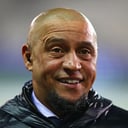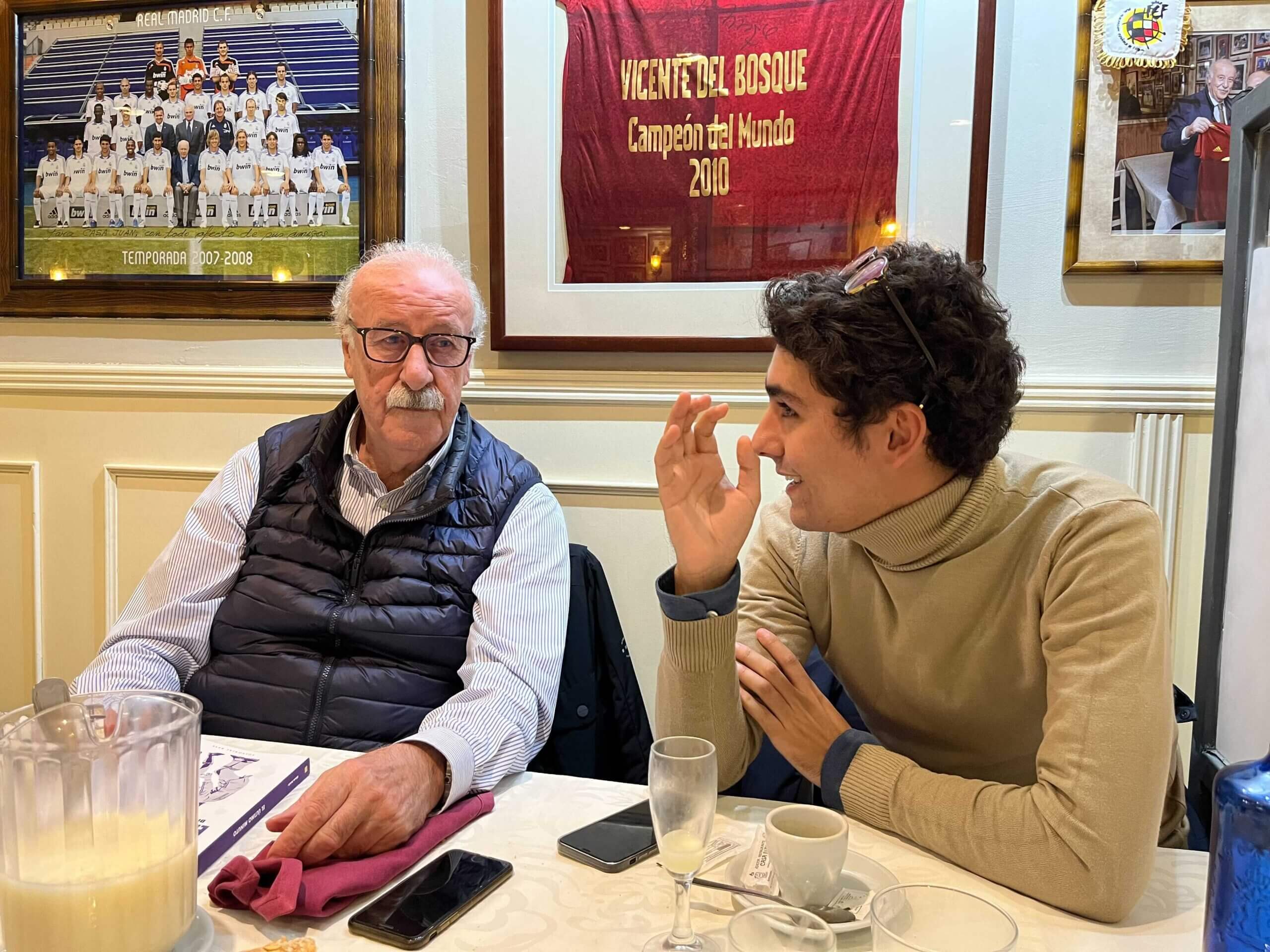Twenty years ago, long before the new Paris Saint-Germain saw the light of day, famous French sports daily L’Equipe published an inspired joke in which one fan said to another: “Madrid have also signed Beckham,” to which the other replied: “And (Formula 1 great Michael) Schumacher to drive the bus.”
Advertisement
It was well-timed. Since the arrival of Florentino Perez as president in 2000, Real had managed to sign some of the world’s best players summer after summer.
The first coup was Luis Figo, perhaps the most controversial because of his Barcelona past, and he was followed by Zinedine Zidane and his volley in Glasgow as the club won their ninth European Cup final. Then in that summer of 2002 came Ronaldo and, the following year, David Beckham.
Three of those four were Ballon d’Or winners — all except Beckham, although he was probably the one who took the most spotlight when he landed in Madrid — and they joined other legends at the club such as Iker Casillas, Roberto Carlos and Raul, so it didn’t take long for the Spanish press to call them Los Galacticos, literally translating as The Galactics, as in they are out of this world.
The nickname was so well received that the presidents of the rest of the Spanish clubs began to use it regularly until the concept was firmly entrenched in football’s lexicon, to the point where it even has its own Wikipedia page.
That is why, to this day, the word still resonates in the heads of fans and has left its mark on new generations of footballers (“I have been a Madridista since Los Galacticos,” Reinier Jesus said when signing for Real Madrid three years ago). But, behind the glamour, the success and the trophies, who was in charge of bringing these stars down to earth?

The Athletic wanted to understand this universe and who better to be our guide than Vicente del Bosque, a man who led them to two Champions League titles and two La Liga wins in his four seasons as coach?
He meets us a few steps from the Santiago Bernabeu stadium in the Asador Casa Juan (above), a gastronomic and footballing museum full of photos and shirts signed by all the great sportsmen who have passed through the Spanish capital, including the Galacticos. It’s not unusual to find footballers escaping their diet here and devouring a chuleton a la piedra (steak) accompanied by jamon iberico (ham), tomato with ventresca (tuna), manchego cheese and other Spanish delicacies, as we do while Madrid’s coach from 1999 to 2003 explains the secrets of the stars.
So, what does it take to manage galacticos?
Training
“It was an easy moment and I don’t put it down to us (coaches) because they (the players) were the right people,” begins Del Bosque.
“The content of the training sessions is so important, as this is what the coach transmits to the players. A coach who gets in front of very good players can’t say, ‘Go out and enjoy yourselves’. I think that’s childish.”
Advertisement
According to the now 72-year-old, that is because the coach’s role is always under scrutiny from the players.
”You have to give them a set of instructions and not let them think they are in the hands of someone who has no idea, because they see people’s weaknesses,” says Del Bosque, who was a Real Madrid player himself for over a decade from the 1960s.
“The players have the healthy or unhealthy habit that when they see someone who is very weak, they say it, or drop their level until they hurt the coach.
“I don’t know if it’s the best thing to do, but it’s not good to pretend you know everything or show too much weakness. I would even say to make it look like they are in charge, but get them to do what you want them to do.”
That doesn’t mean, however, that he didn’t listen to his players and use his ‘mano izquierda’ (a common Spanish expression that comes from bullfighting and refers to those who know to handle situations).
“It was a responsibility for us to make them adapt to a club that was different from what they had experienced,” Del Bosque adds. “For example, I get the impression that Zizou (Zidane) came from a coach at Juventus with whom they had worked a lot on the physical side of things, who used to beat the hell out of him, and he found that here we trained everyone, almost every day, with the ball, which was more pleasant.

“I’m not saying that the previous thing was badly done, but that we gave them an outlet and they (the Galacticos) felt at ease.”
They felt so comfortable that training sessions became a show, providing a sense of excitement to the academy players who trained with the first team, and also for Del Bosque.
“Of course, I also enjoyed it and that’s why we did what they liked,” he says.
Del Bosque emphasises he was not in favour of controlling everything with his players.
“More than imposing yourself, you have to work with the characteristics of the players,” he says. ”A coach can’t be concerned with petty things: get up, don’t eat that, whether we go out at this time or not… It’s unnecessary to wear and tear.”
Matches
Real Madrid were partly about the spectacle, but their main objective was still to win — and they did not forget that.
“Madrid’s history is like taking a penalty, it usually goes in. You don’t believe that you can miss it, but you can miss it,” says Del Bosque, who in his three and a half seasons in charge lifted two domestic titles, two Champions Leagues, a European Super Cup and an Intercontinental Cup (now known as the Club World Cup).
Advertisement
Del Bosque did not get carried away by all the success, however. That’s why he holds current Madrid coach Carlo Ancelotti in high esteem, as he sets out how he believes a team’s manager or coach should behave after a game.
“The best thing is a neutral stance, without getting pissed off; to win without showing off, and without sinking in defeat. Why? Because the players themselves who are going home, if they hear the coach being too smug, he’ll say that you’re smug. Or if you get pissed off, it’s a bad thing. Everyone else can do what they want, but you have to be neutral in defeat and in victory.”
That doesn’t mean he has to be neutral now as he reminisces.
Every coach has his favourites, and if we are talking about Galacticos, it seems that Raul and Roberto Carlos were Del Bosque’s.
“We had a bit of a problem because we had two similar midfielders, who were Zizou and Raul,” he says. “We always played with one striker in front of them, either (Fernando) Morientes or Ronaldo. We had to play with Raul and Zidane, so the organisation of the game was covered by Roberto Carlos, who played as if he was two players.

GO DEEPER
'I was never scared of getting things wrong' - Roberto Carlos on free kicks, Roy Hodgson and going on eBay
“One time, Roberto Carlos had just come from a national team match with Brazil in… I don’t know where. He had taken the plane, he hadn’t slept, he arrived in the morning and in the afternoon, he played. He was in incredible physical condition.

“Raul was also incredible. I always remember when we had two new artificial turf pitches at the Ciudad Deportiva (Madrid’s then training ground), which was a step forward.
“There had been a slope before and we removed it. It gave us more ability to train well but, when we went down the stairs to the pitch, Raul said in his humorous way, ‘We’ll never be able to take a player out here again for the rest of his life because he is used to the dirt pitches in San Cristobal (a humble neighbourhood in the south of Madrid)’. He thought the change was silly.”
Advertisement
As well as Roberto Carlos and Raul, Claude Makelele was key to keeping the galaxy in order on the pitch.
“They were very important people for us,” Del Bosque explains. “(In a footballing sense) Makelele carried the botijo (a traditional Spanish water container) to everyone. They almost, almost distributed and counted how many balls they gave to Roberto Carlos and Luis Figo on the left wing, so that they didn’t fight.”
Psychology
It is said that good coaches are also psychologists, and, when you think of Del Bosque, that is not far from the truth.
Before moving into the dugout, he was Madrid’s youth director and had to deal with many difficult cases with children at risk of social exclusion, which helped him to better understand the difficulty of managing his players from an emotional point of view.
That task would prove particularly useful during his eight years as Spain head coach, when he led the national team to the World Cup trophy in South Africa in 2010 as well as the European Championship two years later. It was Spain’s finest hour, although the rivalry between Madrid and Barcelona, the clubs who supplied so many players to those squads, almost forced Del Bosque to take some unusual advice from a psychologist.
“He told us to put up a clothes rack for the players to leave their club shirts and take a national team one. But I was in a hurry and we didn’t do it,” Del Bosque says. “I am not against psychologists — we have put psychologists on players — but in teams, the coach is the best psychologist. The one who has to make the decisions is the coach.”

Despite his expertise at handling Galacticos, Del Bosque admits he would find it hard to put himself in the shoes of present-day stars such as Cristiano Ronaldo — Madrid’s all-time top goalscorer with 450 goals from 2009-2018.
“They are people who have won everything,” Del Bosque says. “Maybe where he’s going now is a happy solution financially and personally (at Saudi Arabian club Al Nassr). United? you also have to have a good team behind you.”
Advertisement
How would the Portuguese Ronaldo have fared at Madrid if he had played alongside Zidane, Figo, the Brazilian Ronaldo and Beckham?
“The same as with (his actual Madrid team-mates Toni) Kroos and (Luka) Modric — he would have scored 50 goals (a season).”
Del Bosque should know.
(Top photo: Damien Meyer/AFP via Getty Images)
The Athletic’s Spanish football coverage has expanded…
- La Liga news, La Liga table; La Liga fixtures and results
- Dermot Corrigan is joined by four new writers…
- Real Madrid news from Mario Cortegana and Guillermo Rai
- Barcelona news from Pol Ballús and Laia Cervelló Herrero
